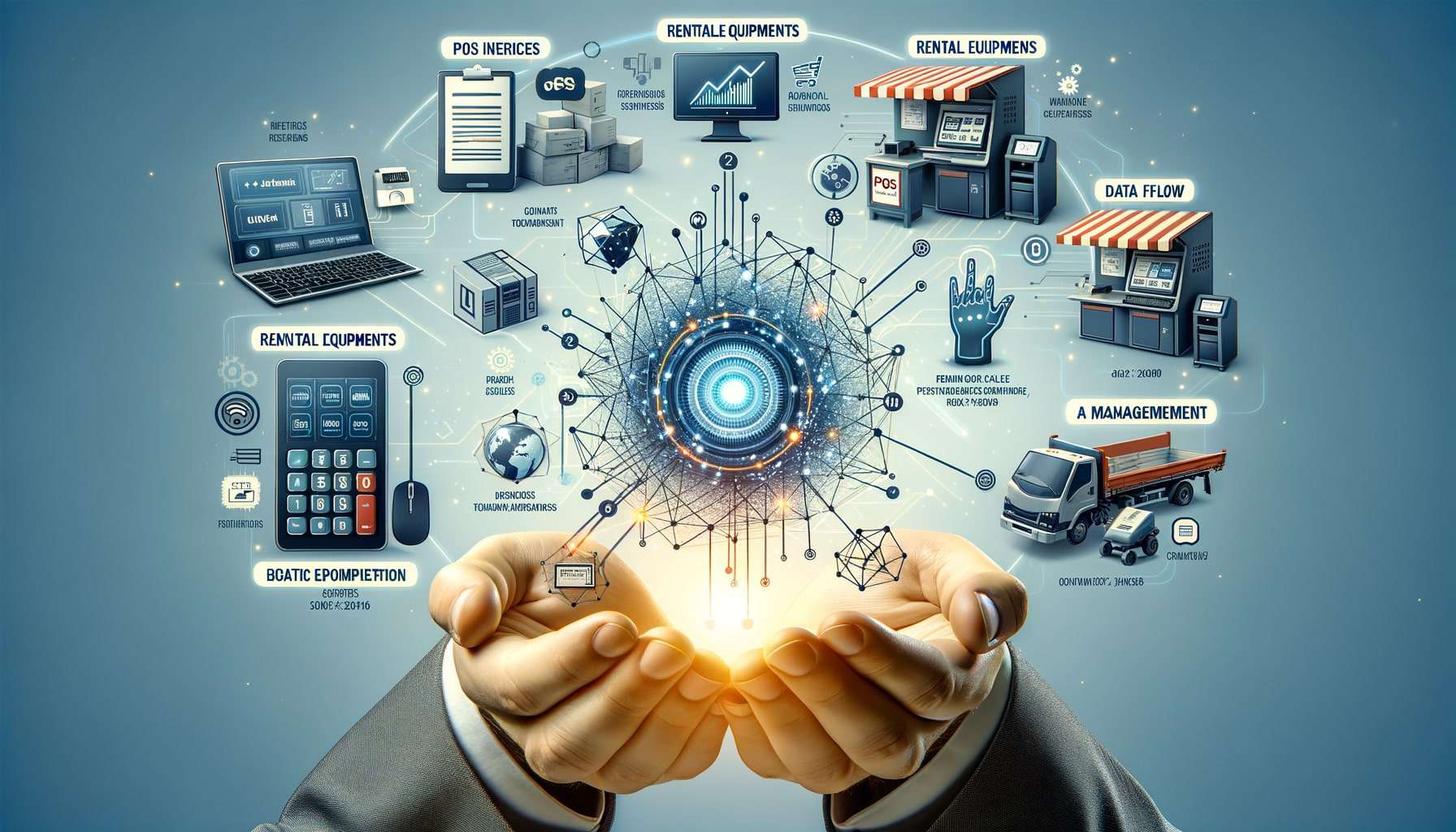
By Harriet Forster December 2, 2024
In today’s fast-paced world, businesses are constantly seeking ways to streamline their operations and improve efficiency. This is especially true for equipment rental businesses, where managing inventory, tracking equipment, and providing exceptional customer service are crucial for success. One tool that has revolutionized the way equipment rental businesses operate is the Point of Sale (POS) system. In this article, we will explore how POS systems help manage equipment rentals and the various benefits they offer.
A POS system is a software and hardware solution that allows businesses to process transactions, manage inventory, and track sales. While traditionally associated with retail businesses, POS systems have evolved to cater to the unique needs of equipment rental businesses. These systems provide a centralized platform for managing all aspects of the rental process, from booking and reservations to inventory management and customer service.
Benefits of Using POS Systems for Equipment Rental Businesses
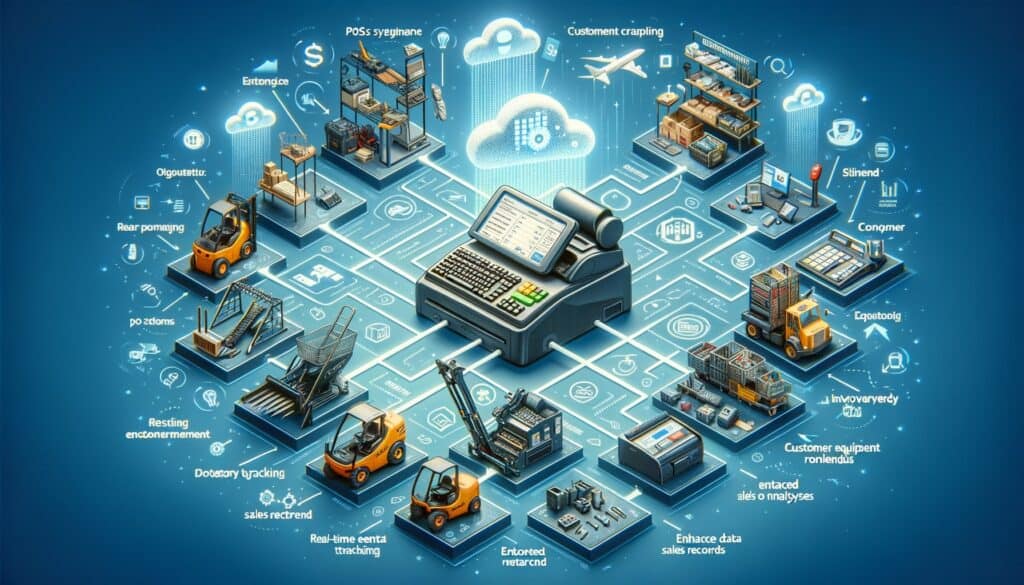
Implementing a POS system in an equipment rental business offers numerous benefits that can significantly improve efficiency and customer satisfaction. Let’s delve into some of the key advantages of using POS systems for equipment rentals.
- Streamlined Rental Process: A POS system automates and streamlines the rental process, eliminating the need for manual paperwork and reducing the chances of errors. Customers can easily browse available equipment, check availability, make reservations, and complete transactions, all in one seamless process.
- Improved Inventory Management: POS systems provide real-time visibility into inventory levels, allowing businesses to efficiently manage their equipment. With accurate inventory tracking, businesses can avoid overbooking, ensure equipment availability, and reduce the risk of double bookings.
- Enhanced Customer Service: POS systems enable businesses to provide exceptional customer service by offering features such as online reservations, automated reminders, and easy check-in/check-out processes. Customers can conveniently book equipment online, receive notifications about their reservations, and complete transactions quickly, resulting in a positive rental experience.
- Efficient Payment Processing: POS systems simplify payment processing by accepting various payment methods, including credit cards, debit cards, and mobile payments. This flexibility not only improves the customer experience but also speeds up the checkout process, reducing wait times and increasing customer satisfaction.
- Accurate Reporting and Analytics: POS systems generate detailed reports and analytics, providing businesses with valuable insights into their operations. These reports can include information on rental trends, popular equipment, customer preferences, and revenue analysis. By analyzing this data, businesses can make informed decisions to optimize their rental offerings and improve profitability.
Key Features to Look for in a POS System for Equipment Rentals
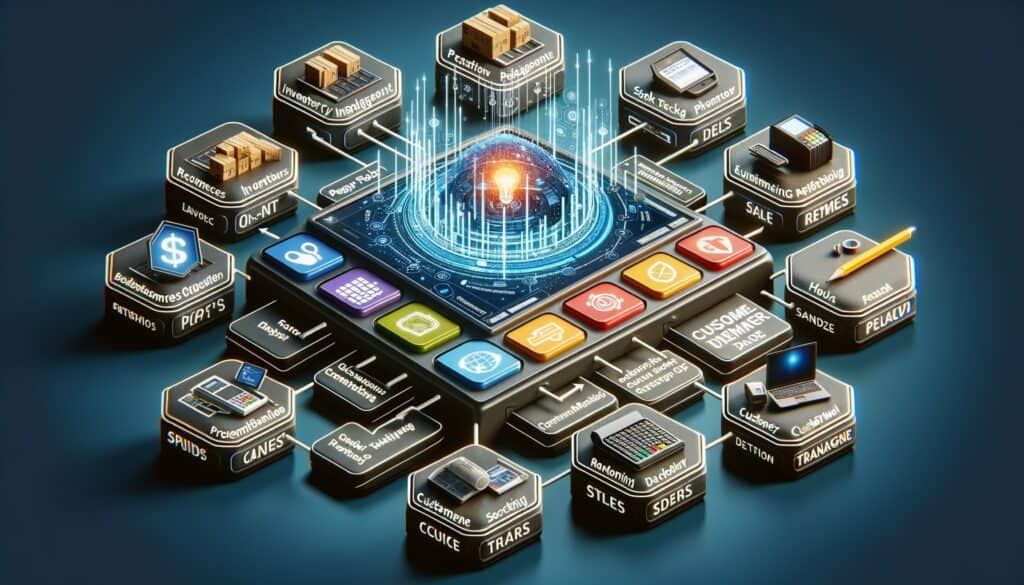
When selecting a POS system for equipment rentals, it is essential to consider the specific needs of your business. Here are some key features to look for in a POS system to ensure it meets your requirements:
- Equipment Tracking: A robust POS system should offer comprehensive equipment tracking capabilities. This includes the ability to assign unique identifiers to each piece of equipment, track its location, and monitor its availability in real-time.
- Reservation Management: The POS system should provide a user-friendly interface for managing reservations. This includes the ability to view, modify, and cancel reservations, as well as send automated reminders to customers.
- Integration with Online Booking Platforms: To maximize convenience for customers, the POS system should seamlessly integrate with popular online booking platforms. This allows customers to browse available equipment, make reservations, and complete transactions online.
- Inventory Management: The POS system should offer advanced inventory management features, such as automatic stock updates, low stock alerts, and the ability to track maintenance and repairs.
- Customer Relationship Management (CRM): A CRM module within the POS system enables businesses to maintain a database of customer information, including contact details, rental history, and preferences. This information can be used to personalize the rental experience and offer targeted promotions.
- Reporting and Analytics: Look for a POS system that provides comprehensive reporting and analytics capabilities. This includes the ability to generate reports on sales, revenue, equipment utilization, and customer behavior. Customizable dashboards and visualizations can also help businesses gain actionable insights from the data.
- Integration with Accounting Software: To streamline financial processes, the POS system should integrate with popular accounting software. This allows for seamless synchronization of sales data, invoices, and payment information.
POS Systems Streamline Equipment Rental Processes
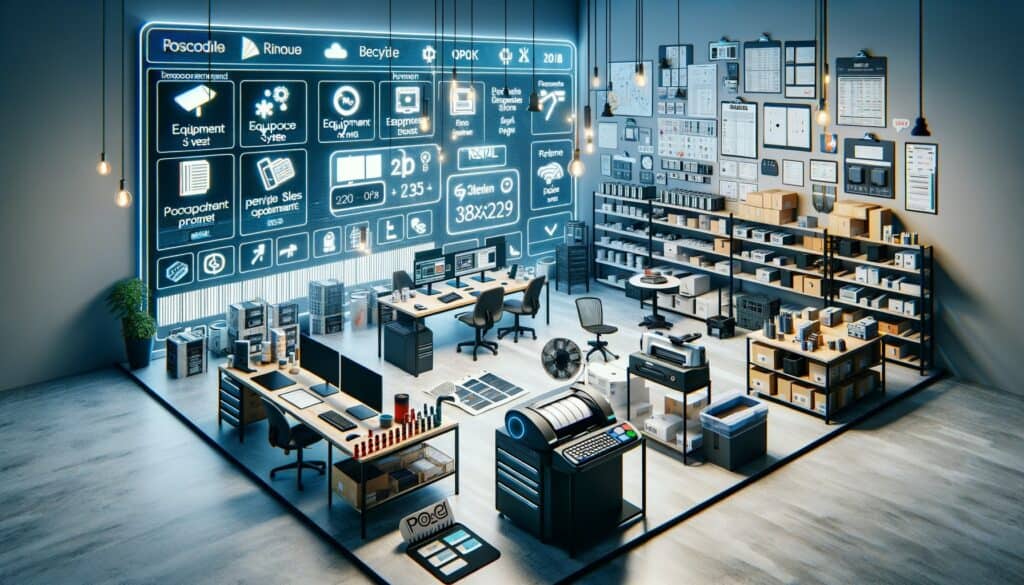
POS systems play a crucial role in streamlining equipment rental processes, making them more efficient and less prone to errors. Let’s explore how POS systems achieve this by automating various aspects of the rental process.
- Online Booking and Reservations: POS systems enable businesses to offer online booking and reservation capabilities, allowing customers to browse available equipment, check availability, and make reservations from the comfort of their homes. This eliminates the need for customers to visit the rental location physically and reduces the chances of equipment unavailability due to manual errors.
- Automated Check-In and Check-Out: With a POS system, the check-in and check-out process becomes quick and hassle-free. Customers can simply present their reservation details or provide their identification, and the POS system can automatically retrieve their reservation information, verify the equipment condition, and complete the transaction.
- Rental Agreement Management: POS systems can generate digital rental agreements that customers can sign electronically. This eliminates the need for paper-based agreements and allows for easy storage and retrieval of rental agreements when needed.
- Equipment Tracking and Availability: POS systems provide real-time visibility into equipment availability and location. This allows businesses to efficiently manage their inventory, avoid overbooking, and ensure equipment is ready for rental. Additionally, businesses can track equipment usage, monitor maintenance schedules, and schedule repairs, ensuring that equipment is always in optimal condition.
- Integrated Payment Processing: POS systems streamline payment processing by accepting various payment methods and automatically calculating rental charges based on predefined rates. This eliminates the need for manual calculations and reduces the chances of errors. Customers can conveniently pay using credit cards, debit cards, or mobile payment options, enhancing the overall rental experience.
Managing Inventory and Tracking Equipment with POS Systems
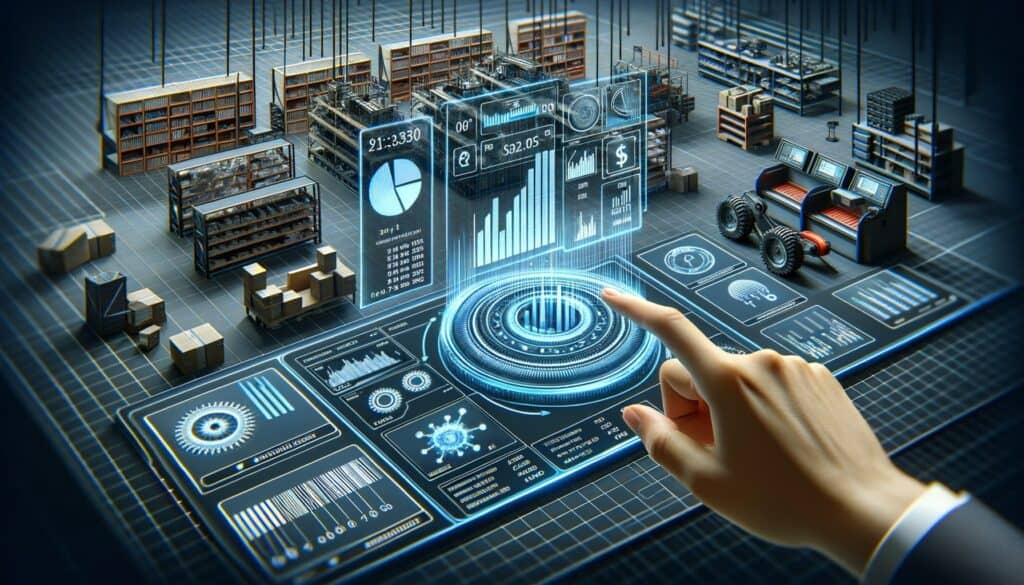
One of the most critical aspects of running an equipment rental business is effectively managing inventory and tracking equipment. POS systems provide powerful tools to simplify these tasks and ensure accurate inventory management. Let’s explore how POS systems help businesses manage inventory and track equipment.
- Real-Time Inventory Visibility: POS systems offer real-time visibility into inventory levels, allowing businesses to monitor equipment availability and prevent overbooking. This ensures that customers can easily find the equipment they need and reduces the risk of disappointing them due to unavailability.
- Equipment Tracking: POS systems enable businesses to track equipment throughout its lifecycle. Each piece of equipment can be assigned a unique identifier, such as a barcode or RFID tag, which can be scanned using the POS system. This allows businesses to track the location of equipment, monitor its usage, and identify any missing or misplaced items.
- Maintenance and Repairs: POS systems can help businesses stay on top of equipment maintenance and repairs. By tracking equipment usage and setting maintenance schedules, businesses can ensure that equipment is regularly serviced and in optimal condition. The POS system can also generate alerts for upcoming maintenance tasks, reducing the chances of equipment failure during rentals.
- Rental History: POS systems maintain a comprehensive rental history for each piece of equipment. This includes information such as rental dates, customer details, and any damages or repairs incurred during the rental period. This historical data can be invaluable for tracking equipment performance, identifying high-demand items, and making informed decisions about equipment purchases or retirements.
- Barcode and RFID Integration: POS systems can integrate with barcode or RFID scanning devices, making it easy to track equipment movements and update inventory records. This eliminates the need for manual data entry and reduces the chances of errors.
Enhancing Customer Experience through POS Systems in Equipment Rentals
Providing exceptional customer service is crucial for the success of any business, including equipment rentals. POS systems play a vital role in enhancing the customer experience by offering convenient and efficient rental processes. Let’s explore how POS systems achieve this and improve customer satisfaction.
- Online Booking and Reservations: POS systems enable businesses to offer online booking and reservation capabilities, allowing customers to browse available equipment, check availability, and make reservations at their convenience. This eliminates the need for customers to visit the rental location physically and provides a seamless and convenient rental experience.
- Automated Reminders: POS systems can send automated reminders to customers about their upcoming reservations. These reminders can be sent via email or SMS, ensuring that customers are well-informed and reducing the chances of no-shows or last-minute cancellations.
- Quick Check-In and Check-Out: With a POS system, the check-in and check-out process becomes quick and hassle-free. Customers can simply present their reservation details or provide their identification, and the POS system can automatically retrieve their reservation information, verify the equipment condition, and complete the transaction. This reduces wait times and enhances the overall rental experience.
- Personalized Service: POS systems with integrated CRM modules allow businesses to maintain a database of customer information, including contact details, rental history, and preferences. This information can be used to personalize the rental experience by offering tailored recommendations, targeted promotions, and customized service.
- Efficient Dispute Resolution: In the event of disputes or discrepancies, POS systems provide businesses with a comprehensive record of rental transactions. This includes details such as rental dates, equipment condition, and customer signatures. Having this information readily available can help resolve disputes quickly and efficiently, ensuring customer satisfaction.
Integrating POS Systems with Online Booking and Reservation Systems
In today’s digital age, customers expect convenience and flexibility when it comes to booking and reservations. POS systems can seamlessly integrate with online booking and reservation systems, providing businesses with a unified platform for managing their rental operations. Let’s explore how POS systems integrate with online booking and reservation systems and the benefits they offer.
- Centralized Booking Platform: Integrating a POS system with an online booking and reservation system creates a centralized platform for managing all rental operations. This allows businesses to streamline their processes, avoid duplicate data entry, and ensure consistency across all channels.
- Real-Time Availability: By integrating with online booking platforms, POS systems can provide real-time availability of equipment. Customers can easily check the availability of equipment, make reservations, and receive instant confirmation, eliminating the need for manual follow-ups or phone calls.
- Seamless Reservation Management: POS systems with online booking integration offer a seamless reservation management experience. Customers can view, modify, or cancel their reservations online, and the changes are automatically reflected in the POS system. This eliminates the need for manual updates and reduces the chances of errors or miscommunications.
- Automatic Synchronization: Integrating POS systems with online booking platforms ensures automatic synchronization of data between the two systems. This includes information such as equipment availability, rental rates, customer details, and reservation status. Any changes made in either system are instantly reflected in the other, ensuring accurate and up-to-date information.
- Improved Customer Experience: Integrating POS systems with online booking platforms enhances the customer experience by providing a convenient and user-friendly interface for making reservations. Customers can easily browse available equipment, view pricing information, and complete transactions online, all in one seamless process. This reduces the need for manual intervention and improves overall customer satisfaction.
Analyzing Data and Generating Reports with POS Systems for Equipment Rentals
Data analysis and reporting are essential for businesses to gain insights into their operations, identify trends, and make informed decisions. POS systems for equipment rentals offer robust reporting and analytics capabilities, allowing businesses to analyze data and generate meaningful reports. Let’s explore how POS systems help businesses analyze data and generate reports.
- Sales and Revenue Analysis: POS systems capture detailed sales data, allowing businesses to analyze their revenue streams. This includes information such as rental rates, discounts, add-on services, and payment methods. By analyzing this data, businesses can identify their most profitable equipment, evaluate pricing strategies, and optimize revenue generation.
- Equipment Utilization: POS systems provide insights into equipment utilization, allowing businesses to identify high-demand items and optimize their inventory. By analyzing rental patterns and equipment availability, businesses can make informed decisions about equipment purchases, retirements, or diversification.
- Customer Behavior Analysis: POS systems with integrated CRM modules capture customer data, including rental history, preferences, and contact details. By analyzing this data, businesses can gain insights into customer behavior, identify loyal customers, and tailor their marketing strategies to target specific customer segments.
- Rental Trends and Seasonality: POS systems can generate reports on rental trends and seasonality, helping businesses identify peak periods, popular equipment, and potential opportunities for growth. This information can be used to optimize pricing strategies, plan marketing campaigns, and allocate resources effectively.
- Customizable Dashboards and Visualizations: POS systems often offer customizable dashboards and visualizations, allowing businesses to create personalized reports and visual representations of their data. This makes it easier to understand complex information, identify trends at a glance, and share insights with stakeholders.
Common Challenges and Solutions in Implementing POS Systems for Equipment Rentals
While POS systems offer numerous benefits for equipment rental businesses, implementing them can come with its own set of challenges. Let’s explore some common challenges businesses may face when implementing POS systems for equipment rentals and the solutions to overcome them.
- Integration with Existing Systems: Integrating a new POS system with existing systems, such as accounting software or online booking platforms, can be challenging. To overcome this, businesses should choose a POS system that offers seamless integration capabilities and work closely with the POS system provider to ensure a smooth transition.
- Staff Training and Adoption: Introducing a new POS system requires training staff members on how to use the system effectively. To ensure successful adoption, businesses should provide comprehensive training sessions, offer ongoing support, and encourage staff feedback to address any concerns or difficulties.
- Data Migration: Migrating existing data, such as customer information or rental history, to a new POS system can be a complex task. To simplify this process, businesses should work closely with the POS system provider to develop a data migration plan and ensure data integrity during the transition.
- Connectivity and Reliability: POS systems rely on stable internet connectivity to function effectively. To mitigate connectivity issues, businesses should invest in reliable internet connections, consider backup options such as mobile hotspots, and have contingency plans in place in case of network outages.
- Security and Data Protection: Protecting customer data and ensuring the security of transactions is crucial for any business. When implementing a POS system, businesses should choose a system that complies with industry standards for data security, such as Payment Card Industry Data Security Standard (PCI DSS) compliance. Regular security audits and updates should also be conducted to safeguard customer information.
FAQs
Q1. What is a POS system for equipment rentals?
A POS system for equipment rentals is a software and hardware solution that allows businesses to process transactions, manage inventory, and track sales in the equipment rental industry. It provides a centralized platform to handle all aspects of the rental process, from booking and reservations to inventory management and customer service.
Q2. How does a POS system streamline equipment rental processes?
A POS system streamlines equipment rental processes by automating tasks such as booking, reservations, check-in/check-out procedures, and payment processing. It eliminates the need for manual paperwork, reduces the chances of errors or double bookings, and saves time for both customers and rental businesses.
Q3. What are the key features to look for in a POS system for equipment rentals?
Key features to look for in a POS system for equipment rentals include equipment tracking, reservation management, integration with payment gateways, customer relationship management (CRM), and reporting and analytics capabilities. These features help businesses manage inventory, streamline rental processes, and enhance the customer experience.
Q4. How does a POS system help in managing inventory and tracking equipment?
A POS system helps in managing inventory and tracking equipment by providing real-time visibility into inventory levels, tracking equipment throughout its lifecycle, scheduling maintenance and repairs, and recording damages. This ensures that businesses can efficiently allocate equipment, maintain well-functioning inventory, and provide customers with high-quality equipment.
Q5. How does a POS system enhance the customer experience in equipment rentals?
A POS system enhances the customer experience in equipment rentals by providing personalized recommendations, streamlining check-in and check-out processes, sending automated notifications, collecting customer feedback, and offering loyalty programs and rewards. These features ensure a smooth and hassle-free rental experience, leading to increased customer satisfaction.
Conclusion
POS systems have revolutionized the way equipment rental businesses operate by streamlining processes, managing inventory, and enhancing the customer experience. These systems provide a centralized platform to handle all aspects of the rental process, from booking and reservations to inventory management and customer service.
By automating tasks, providing real-time visibility into inventory, and offering features such as personalized recommendations and automated notifications, POS systems help businesses improve efficiency, reduce errors, and boost profitability. When selecting a POS system for equipment rentals, it is essential to consider key features such as equipment tracking, reservation management, payment integration, CRM capabilities, and reporting and analytics.
By leveraging the power of POS systems, equipment rental businesses can stay ahead of the competition, provide exceptional customer service, and achieve long-term success.